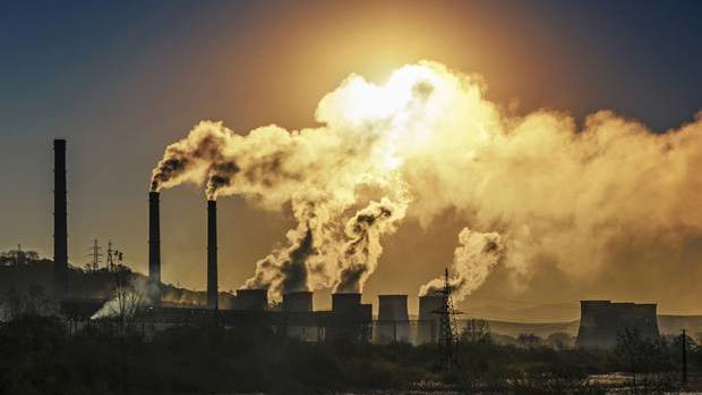The Government has today unveiled its Emissions Reduction Plan this morning to reduce emissions to hit New Zealand's emissions budgets.
Here are eight talking points:
Targets
The Government wants at least 30 per cent of the light vehicle fleet (ordinary passenger cars) to be zero emissions by 2035, and it wants people to drive 20 per cent less by that year too. This means people in cities living closer together and using public transport more.
Both targets were consulted on last year but have now been affirmed.
The Government has raised its ambitions for cutting emissions from freight transport. This target will be to reduce emissions by 35 per cent by 2035. The Government has slightly lowered its sights when it comes to reducing the emissions intensity of transport fuel. This target has been lowered slightly, to reduce emissions by 10 per cent by 2035.
One of the biggest targets - one that was missing from the draft emissions plan the Government put out for consultation last year - is to set a target of 50 per cent of final energy consumption coming from renewable sources by 2035. So far, the Government has set targets for renewable electricity generation (100 per cent by 2030), expanding that target to include all energy is a big step.
Bans
The plan reaffirms Labour's policy of banning new fossil fuel electricity generation. It also includes a proposal to ban or effectively ban the importing of polluting cars. By next year, the Government plans to set a maximum CO2 emissions level for new cars. The limit would either ban the import of those cars, or force people importing the vehicles to pay a heavy penalty for the privilege. The Government wants it in place by next year.
Softly softly - and potential u-turns
The Government had heavily signalled it would be looking to extend its half-price public transport fares in the plan.
Half-price public transport fares are slated to run out in weeks, unless given a further top-up in Thursday's Budget. There was no indication this would be extended in the emissions reduction plan, beyond a commitment to work with local government to "make public transport more affordable, with a particular focus on low-income users".
(On that note, the Government did commit to having fully zero emissions public transport by 2035).
That's not a definite u-turn, but it's hardly a ringing endorsement of the plan either.
One proposal that has emphatically disappeared from the plan was a proposal from the Government's consultation document to ban new gas connections from homes. The Government has scrapped this, but is working on an overall emissions standard for buildings.
Funds
At last year's Budget, the Government announced it would funnel the revenue generated from the Emissions Trading Scheme (ETS) into climate change projects. Last December, it dubbed the scheme by which it would do this the "Climate Emergency Response Fund" or CERF. The funding for the Emissions Reduction Plan projects announced on Monday came from this fund. On Monday, the Government announced it was open to topping up the fund with money from general taxation, given the scale of the climate transition.
Subsidies
The plan is full of hefty subsidies.
The Government will allocate $568 million from the CERF to help low-income New Zealanders buy EVs or hybrids. People on low incomes will be able to trade-in their polluting vehicle and receive money to upgrade to an EV or hybrid. The funding pays for an initial trial of 2500 vehicles, tagged at $15.9m a year for the next two years, before increasing to $242m in 2024/25.
The Government is also offering subsidies to help industry switch to zero emissions. The Government Investment in Decarbonising Industry Fund, or GIDI, had an initial investment of $69m, and was used to switch some industries from emissions-intensive energy generation to green electricity. Investments include paying for transmission infrastructure to hook industrial producers up to the electricity grid, enabling them to switch off their own coal-fired power.
The fund has been given a further $650m from the Budget (not from the CERF).
The plan even included a policy to subsidise freight companies to purchase low- and zero-emissions trucks from 2022.
That could be big … could also be nothing
Announcements like this often include commitments to investigate projects the Government would like to do at some point - just not yet.
These policies could be big - they could also turn out to be nothing.
In this vein, the Government proposes to investigate inter-regional public transport services, meaning better intercity bus (and maybe train) services could become viable.
The Government said it wanted to deliver "major" public transport service and infrastructure improvements in Christchurch, something it has been working on with the Canterbury councils.
Taxes
The Government has strongly foreshadowed it would introduce congestion pricing in Auckland and possibly Wellington in the plan.
The plan did not include a final recommendation on this. Instead, it said ministers would make a final decision on congestion pricing in Auckland by the end of this year and talk with Wellington councils by the end of the year.
Congestion price isn't yet a sure thing - but it appears highly likely.
Agriculture
Agriculture is New Zealand's largest emitter by far, accounting for roughly half of New Zealand's total greenhouse gas emissions. Agriculture was not entirely missing from the Emissions Reduction Plan, but meaty policies appear to be waiting on emissions pricing to be rolled-out in the sector. The Government says this will happen in some way by 2025.
Despite not directly paying anything into the Emissions Trading Scheme fund, Agriculture has done quite well from the fund, securing a quarter of all funding divided up on Monday - $710m. Finance Minister Grant Robertson said the Government could have stood on principle and blocked agriculture from taking money from the fund, instead it prioritised reducing emissions and incentivising behavioural change. That's a huge win for the likes of Groundswell.
- by Thomas Coughlan, NZ Herald
Take your Radio, Podcasts and Music with you










